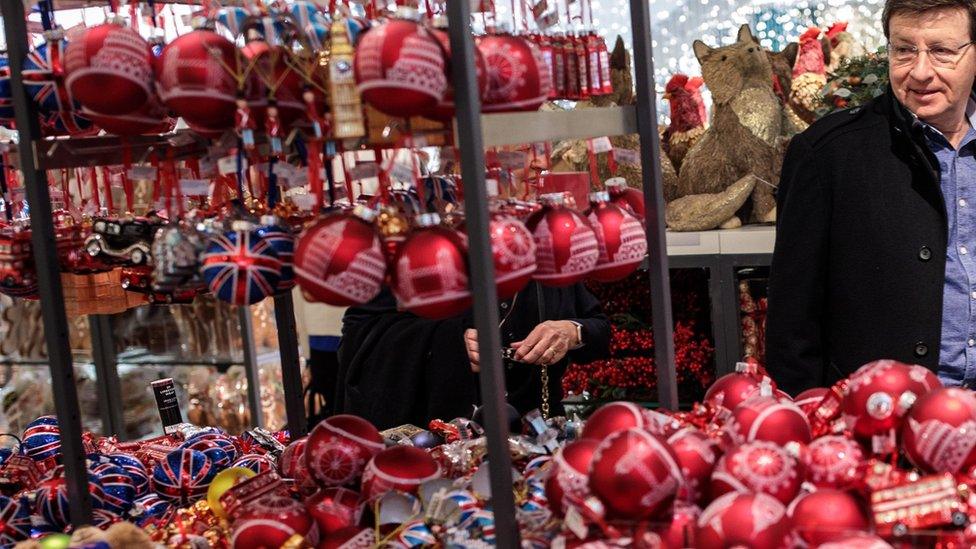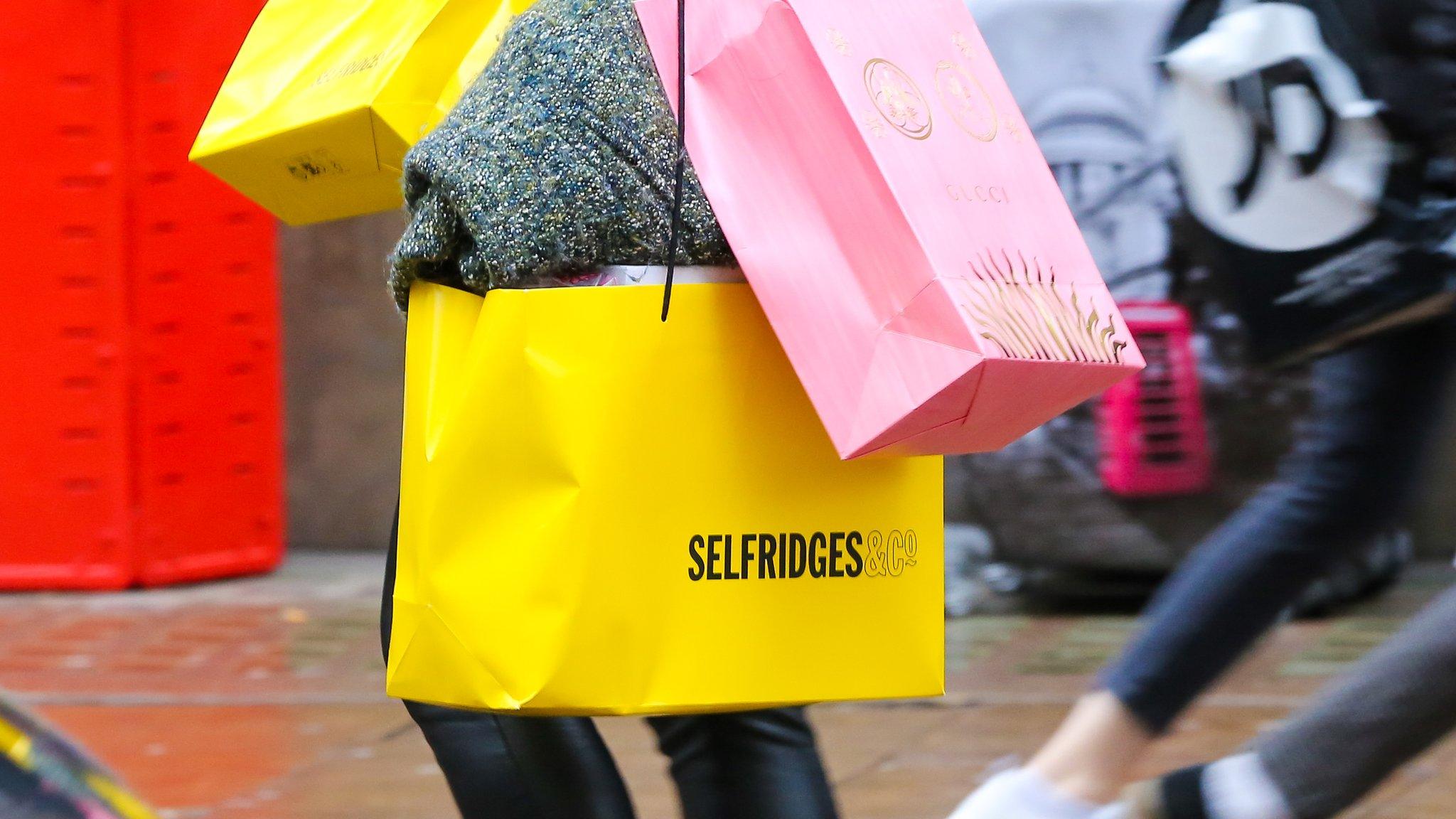John Lewis staff bonus in doubt
- Published
- comments
Sir Charlie Mayfield
John Lewis says sales in the seven-week Christmas period were 1.4% higher than for the same period last year.
However, that may not be enough to secure a bonus for its 83,000 staff this year, the firm said.
John Lewis' structure is unique. It is owned by its staff, known as partners.
It says it will think carefully about whether to give staff their traditional share in March. If it decides not to, it would mark the first time since 1953 the partners had gone without.
Typically in profitable years, staff at the 350 Waitrose and 51 John Lewis stores receive a share of these. In the very best years, these bonuses can add the equivalent of a few months' worth of pay.
Both Waitrose and John Lewis saw sales rise.
Gross like-for-like sales, which strip out the impact of store opening and closures, at its Waitrose supermarkets, were £1.05bn, up 0.3% on last year.
The John Lewis department stores themselves saw sales of £1.1bn, up 1% on last year.
Waitrose's online sales over the Christmas period were particularly strong, increasing by 12.8%.

John Lewis sales were boosted by last-minute Christmas Eve purchases
'Substantially lower'
Sir Charlie Mayfield, chairman of the John Lewis Partnership, outlined the challenges facing shopkeepers: "Two main factors are affecting the retail sector - oversupply of physical space and relatively weak consumer demand.
"Despite this, we had a positive Christmas trading period, thanks to the extraordinary efforts of partners in our business."
He said full-year profits would be "substantially" lower this year.
Sir Charlie told the BBC: "Every year the board looks at what we can afford to pay in bonus in March. What we've said is because of the steps we've taken we've got a strong financial position and we can afford to pay a bonus. The question is whether it's prudent to do so and of course that's a judgement about what's coming and the uncertainty in the market and this year of course there's quite a lot of that. So we just have to look at that sensibly.
"In our business, it's owned by the people who work in it, we live within our means and we have to take account of what's coming up even if it's uncertain and we can't quite judge it perfectly."
The partnership also said that Black Friday, which has become one of the most important trading days of the year, contributed to the biggest sales week in its history.
John Lewis said at the start of January that the week running up to Christmas itself saw sales rise by 11% on the previous Christmas.
John Lewis reported very strong sales on Christmas Eve itself - which was included in the last week of trading - as customers bought last-minute gifts.
- Published11 January 2019

- Published10 January 2019

- Published3 December 2018

- Published2 January 2019

- Published29 December 2018

- Published18 October 2018
